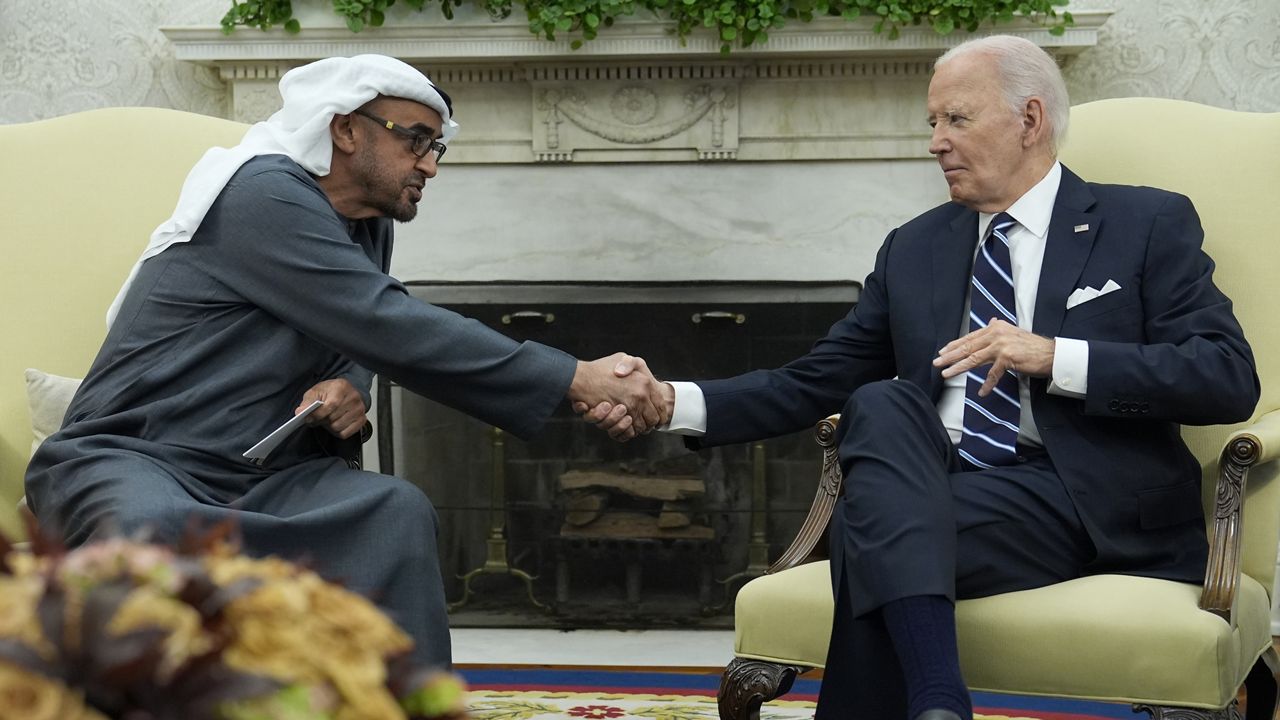World
Biden hosts UAE president at WH amid Middle East tensions

President Joe Biden on Monday sat down with United Arab Emirates President Sheikh Mohamed bin Zayed Al Nahyan in the Oval Office.
The meeting marked the first visit to the White House from a sitting UAE president and it came amid rising tensions in the Middle East.
In brief remarks to the press at the top of the sit-down on Monday, Biden praised the UAE and its people as “trailblazers” who are always “making big bets” — and the U.S. and UAE, he said, share those attributes.
Biden also referred to the two countries’ relationship as a “strategic partnership” rooted in decades of “close cooperation and friendship.”
Sheikh Mohamed told Biden he has wanted to reaffirm his “firm and unwavering” commitment to work with the United States “for the sake of deepening the strategic partnership between our two nations.”
The two were set to discuss advanced technology, security and defense and climate on Monday, with Biden specifically pointing to artificial intelligence, space, clean energy and investing in infrastructure during his brief remarks to the press.
But also expected to be top of the list was the war in Gaza and escalating attacks between Israel and Lebanon’s Hezbollah.
Biden on Monday told reporters at the top of his meeting with the UAE leader that he had been briefed on the “latest developments in Israel and Lebanon.”
“My team is in constant contact with their counterparts and we’re working to deescalate in a way that allows people to return to their homes safely,” the president said.
The Pentagon on Monday announced that the U.S. is sending additional troops to the region amid the surge in violence between Israel and Hezbollah in recent days. Lebanese authorities said Israeli strikes in the country on Monday killed more than 350 people.
Tensions have flared between Israel and the Iranian-backed group in Lebanon since the start of the war in Gaza but the recent developments have led to a rush of concern that a wider regional war could be on the horizon.
Biden on Sunday told reporters as he returned to the White House that he was worried about rising tensions in the region and said the U.S. is doing “everything we can” to avoid a wider war. It all comes just before the one-year mark since the start of the Israel-Hamas war.
The U.S. along with Egypt and Qatar have been working for months to try to shore up a new cease-fire and hostage release deal that ultimately seeks to facilitate an end to the fighting in Gaza. Despite the Biden administration in recent weeks saying such a potential deal is close, none has thus far not been able to get across the finish line.
The UAE throughout the war has worked with the World Health Organization to help evacuate sick and injured people in Gaza amid the fighting that has killed more than 40,000 people in the Palestinian territory, according to the Hamas-run Health Ministry.
Vice President Kamala Harris, who is the Democratic nominee for president looking to defeat former President Donald Trump in November, also met separately with Sheikh Mohamed on Monday.
Per her office, Harris hailed the UAE’s leadership and partnership with the U.S. on advanced technology like AI, diversifying supply chains and space exploration, while both leaders underscored the need for a cease-fire and hostage deal in Gaza. They also discussed the conflict in Sudan, “which has displaced nearly 10 million people and left 25 million in need of humanitarian aid.”









